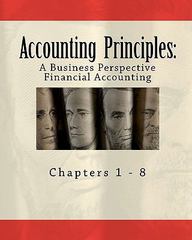Question
Here are some excerpts from Banerjee and Duflo's book: Poor Economics : The real problem of development, ( i.e., from the the institutionalist view of
Here are some excerpts from Banerjee and Duflo's book: Poor Economics:
The real problem of development, (i.e., from the the institutionalist view of William Easterly), is not one of figuring out good policies: It is to sort out the political process. If the politics are right, good policies will eventually emerge. And conversely, without good politics, it is impossible to design or implement good policies, at least not on any scale....It follows (or so it is assumed) that "big questions" require "big answers"--social revolutions, such as a transition to effective democracy.
At the other extreme, Jeffrey Sachs sees corruption, perhaps not surprisingly, as a poverty trap: Poverty causes corruption, and corruption causes poverty. His suggestion is to break the trap by focusing on making people in developing countries less poor: Aid should be given for specific goals (such as malaria control, food production, safe drinking water, and sanitation) that can easily be monitored. Raising living standards, Sachs argues, would empower civil society and governments to maintain the rule of law.
Corruption, or the simple dereliction of duty, creates massive inefficiencies. If teachers or nurses do not come to work, no education or health policy can really be implemented. If truck drivers can pay a small bribe to drive massively overloaded trucks, billions of dollars will be wasted in building roads that will be destroyed under their wheels.
Our colleague Daron Acemoglu and his long-term coauthor, Harvard's James Robinson, are two of the most thoughtful exponents of the rather melancholy view, active in economics today, that until political institutions are fixed, countries cannot really develop, but institutions are hard to fix.
...The argument in Acemoglu and Robinson's book Why Nations Fail, which
reflects a widely shared view among scholars of political economy, is that these (broad) institutions are the prime drivers of the success or failure of a society. Good economic institutions will encourage citizens to invest, accumulate, and develop new technologies, as a result of which society will prosper. Bad economic institutions will have the opposite effects. One problem is that rulers, who have the power to
shape economic institutions, do not necessarily find it in their interest to allow their citizens to thrive and prosper. They may personally be better off with an economy that imposes lots of restrictions on who can do what (that they selectively relax to their advantage), and weakening competition may actually help them stay in power. This is why political institutions matter-they exist to prevent leaders from organizing
the economy for their private benefit. When they work well, political institutions put enough constraints on rulers to ensure that they cannot deviate too far from the public interest.
Unfortunately, bad institutions tend to perpetuate bad institutions, creating a vicious circle, sometimes called the "iron law of oligarchy."
Those who have power under the current political institutions get to make sure that the economic institutions work toward making them rich, and once they are rich enough they can usually use their wealth to forestall any attempts to move them out of power.
The long shadow of bad political institutions, for Acemoglu and Robinson, is the main reason many countries in the developing world have failed to grow. Those countries inherited from the colonial period a set of institutions that were put in place by colonial rulers not for the development of the country but to maximize the extraction of resources for the benefit of the colonial powers. After decolonization, the new rulers found it convenient to hold on to the same extractive institutions
and use them for their own benefit, thereby setting off a vicious cycle.
**
Browse Chapter 10 of Poor Economics. Briefly, in one or two paragraphs, explain whether Banerjee and Duflo agree with Jeff Sachs or if they agree with Easterly, Acemouglu and Robinson.
Step by Step Solution
There are 3 Steps involved in it
Step: 1

Get Instant Access to Expert-Tailored Solutions
See step-by-step solutions with expert insights and AI powered tools for academic success
Step: 2

Step: 3

Ace Your Homework with AI
Get the answers you need in no time with our AI-driven, step-by-step assistance
Get Started


